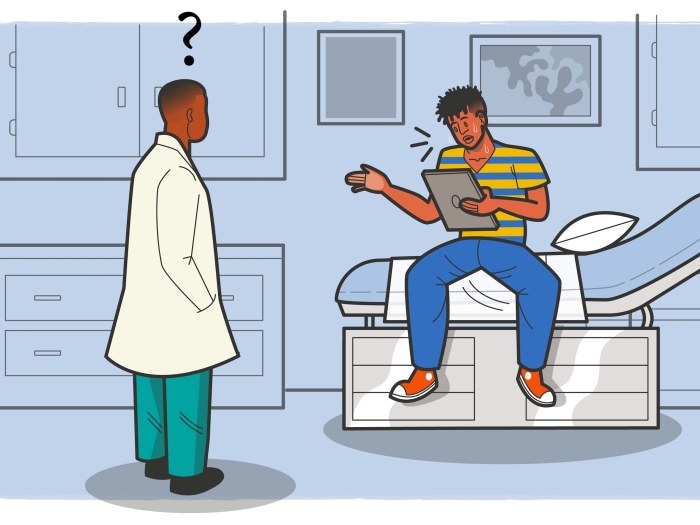While taking a year off of medical school for depression and anxiety, I decided to start a peer support group, something I had wished was available to me during my struggles. I had been supported by faculty and staff immensely during my first semester of medical school but felt so isolated from other students. I thought I was the only one struggling so much to make it through the pre-clinical curriculum. I attributed so many of my feelings to "medical school is just hard." Later, I learned that although medical school is challenging, it becomes nearly impossible when you're struggling with mental health issues.
Through the support of my counselor, M-Home director, and others in the Office of Medical Student Education, I started putting together peer support meetings. At the onset, my only goal was to open up the discussion about the emotional hardships and growth that occurs during medical school. We learn so many important things in medical school, but rarely do we have time in our busy schedules to sit back and personally reflect.
I was greeted by overwhelming support from my classmates after I disclosed my mental health struggles. Everyone I talked to about my depression and anxiety was candid in their responses. I started having open, honest conversations with my peers about mental health struggles they or someone they knew had experienced. Being transparent with my peers allowed them to open up as well. I was unveiling this thin disguise that many medical students wear: portraying themselves, intentionally or not, as being perfectly fine.
After doing many literature searches, talking to staff and faculty in the medical school, and others in the community, I have become determined to change the culture in medical schools around mental health struggles. You would think that of all places, medical schools would be the one place that mental health issues are readily talked about. I participated in a project spearheaded by my classmate and friend Rahael that shows this is not the case, and much more needs to be done to remove the stigma of speaking out. Unfortunately Michigan is not alone, and not the worst offender, in medical student mental health interventions.
As the peer support group and advocacy program grows, I challenge the faculty, staff, resident, fellows and attending physicians in our school and hospital to demand better mental and physical wellbeing initiatives for medical care providers. If we can get those at the top of the health care pyramid to require wellness initiatives for all medical care providers, I believe that we can change the culture around mental health struggles, and start to tackle the high rates of physician, and student physician (medical student) burnout, depression, anxiety and suicide.
"You see a lot, Doctor. But are you strong enough to point that high-powered perception at yourself? What about it? Why don't you - why don't you look at yourself and write down what you see? Or maybe you're afraid to." – Clarice Starling, Silence of the Lambs
Feel free to email us at: [email protected]


Department of Communication at Michigan Medicine
Want top health & research news weekly? Sign up for Health Lab’s newsletters today!





